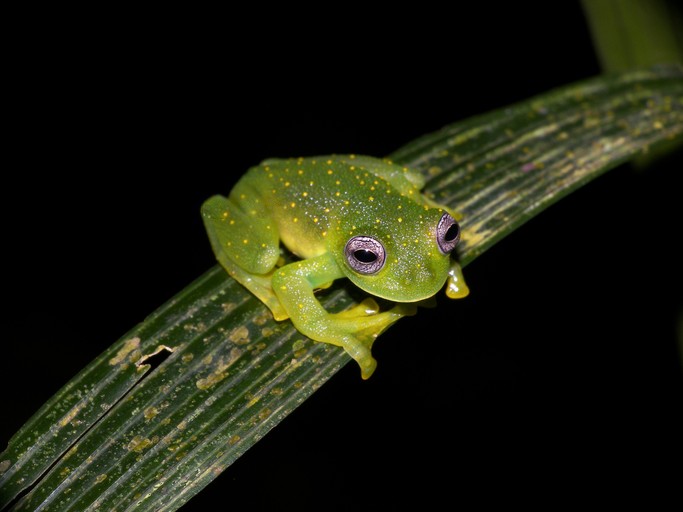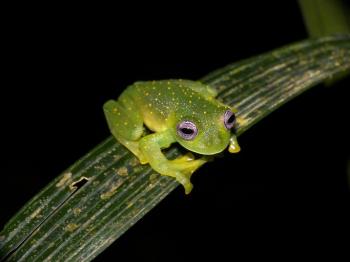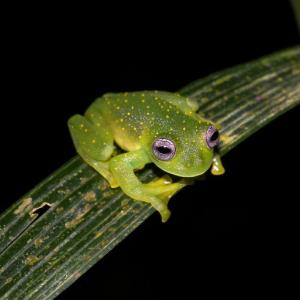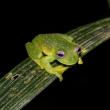‘Tis the season for frog-watching; help needed
LIBERTY — Like frogs? FrogWatch USA and the Belfast Bay Watershed Coalition is seeking citizen scientists to help find and monitor the amphibians, with the next training session to be held in Liberty, May 31, 9 a.m. to 12:30 p.m., at the library (next to Liberty Tool on Route 173). No expertise is necessary and the watch includes at least three wetland monitoring sessions between April and August. The sessions take approximately 15 minutes each.
Cloe Chunn has been instrumental in getting frog-watchers organized into Maine chapters.
“Listening and counting frogs is easy in Maine,” she said. “We have eight frogs and one toad (Southern Maine has two toads). The calls are distinct and fun to learn. Reports are now sent in online, unless people do not have the capacity. They can still mail paper reports. The program has been going on for 10 years.”
Frog-watching is sponsored by the Association of Zoos and Aquariums.
The trainers are Gary Gulezian and Cloe Chunn. To sign up, Call Faith Hague, 236-2958, or email faithhague@gmail.com, or email cloechunn@gmail.com.
One year ago, I attended a FrogWatch training, thinking it would be interesting,” said Chunn. “I learned it was easy and convenient, too. The speaker showed a map of chapters all over the U.S., and there were NO chapters in Maine! That got me motivated! I got trained as a regional coordinator (along with two others present that day), and so far we have started six chapters in Maine, and hope to keep on. So far we have Midcoast Maine Chapter (Belfast to Rockland), Liberty Chapter, Unity Chapter, Lower Penobscot Chapter (Bangor to Lincoln), DownEast Lakes Chapter (Grand Lake Stream area), and Quoddy Regional Chapter (Calais to Lubec). All we need is an invitation and we will start one.”
Frogs are important to the ecosystem because:
- They are an integral part of the wetland food web, acting as both predator and prey
- Frogs are ecological indicators of ecosystem health
- Frogs are in decline all over the world and we need more data to understand the scope, pattern, and cause
What will the data be used for?
- Local wetland management decisions
- To describe local species diversity
- To detect rare and invasive species
- Large scale amphibian behavior, population trends, responses to climate change etc.
What is required of volunteers?
- Attend a free training session- No expertise needed
- At least three wetland monitoring sessions between April and August (takes about 15 min)
Event Date
Address
United States





























